
Adrian Mulligan
Research Director for Customer Insights
Elsevier

Adrian Mulligan is Research Director for Customer Insights at Elsevier. He has more than 20 years’ experience in STM publishing, much of that time spent in research. He oversees research programs used to drive action in the business and to help shape Elsevier strategy. The Customer Insights team works in partnership with external groups to deepen understanding of the scholarly landscape across the industry. He has presented on a range of research-related topics at various conferences, including STM, ESOF, AAP, SSP, APE and ALPSP. Adrian’s background is in archaeology; he has a BA Honours degree and a master of science degree from the University of Leicester. He also has a diploma in market research from the Market Research Society.

Dr. Bamini Jayabalasingham is a Ph.D trained researcher with experience conducting evaluations to support evidence-based policy and program changes at the federal and municipal level. In her current role as Senior Product Manager with Elsevier’s Analytical Services, she has responsibility for developing analytical products using bibliometric data to support the strategic planning needs of clients in academia and government. Projects she has worked on include Cancer Research Current Trends and Future Directions and, The researcher journey through a gender lens.
Prior to joining Elsevier she held positions as Health Science Administrator at the Office of Research on Women’s Health, US National Institutes of Health, and Science Policy Analyst at the Public Health Agency of Canada.
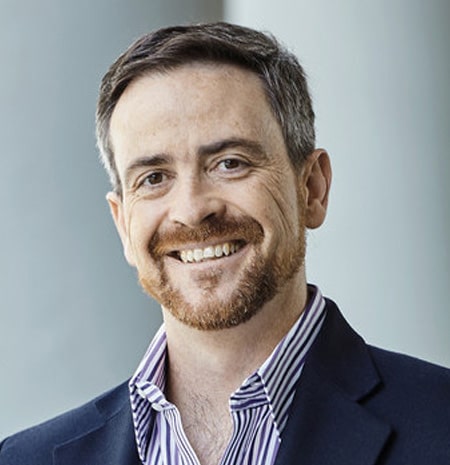
Professor Attila Brungs is the Vice-Chancellor and President of the University of Technology Sydney. He has previously held senior positions with CSIRO and McKinsey & Company.
Professor Brungs is a Rhodes Scholar with a Doctorate in Inorganic Chemistry from Oxford University and a University Medal in Industrial Chemistry from the University of New South Wales.
Some of Professor Brungs’ present key appointments include Australian Technology Network Chair; the NSW Innovation and Productivity Council; the Committee for Sydney Board; and Australian Academy of Technology and Engineering fellow. His experience includes many distinguished past board and committee memberships, including not-for-profit organisations, in addition to numerous state and federal government and institutional appointments.
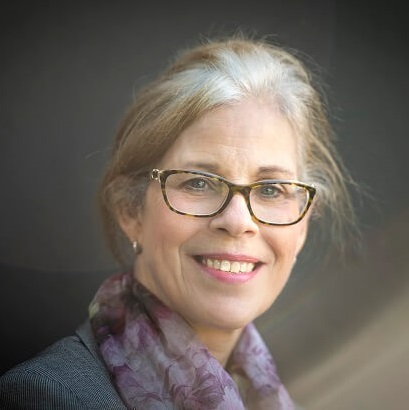
Dawn Freshwater is Vice-Chancellor of the University of Auckland, and has been a globally recognised as a leader in world-class universities for more than a decade, whilst remaining committed to her academic discipline.
She became the University’s first female Vice-Chancellor in March 2020, after serving as the University of Western Australia’s Vice-Chancellor and Senior Deputy Vice-Chancellor and Registrar for six years (2014-2020). In her role as Vice-Chancellor of The University of Western Australia (UWA), she led the development of UWA’s ambitious 2030 Vision and 2025 Strategic Plan, and a significant transformation agenda. She was instrumental in leading the development of the UWA Public Policy Institute, creating a bridge between academic research and government, public and business needs, and delivering real-world policy impact and solutions to local and global challenges for the Indian Ocean Rim and the broader Indo-Pacific region.
Professor Freshwater was the first female Chair of the G08 Research Intensive Universities in Australia, and Deputy Chair (2018-2020) having previously been a Director. She is currently a Board Director of the Perth USAsia Centre, Chair of the Partnership Board of the World University Network (WUN), member of the National Health and Research Medical Council’s Women in Health Science Committee (NHMRC) and a board Director of Research Australia. She is also a member of Chief Executive Women (CEW) Engagement Committee.
Professor Freshwater was awarded her PhD at the University of Nottingham (1998) and is a highly experienced and driven supporter of translational research and research-led teaching. Her contribution to the fields of Public Health (specifically Mental Health and Forensic Mental Health) and in researching Leadership practices won her the highest honour in her field – the Fellowship of the Royal College of Nursing (FRCN).
As an academic, Professor Freshwater has contributed to almost 200 publications, including peer-reviewed papers, research reports, books, editorials and media contributions, and she continues to supervise PhD students.
As an active researcher and scholar, Professor Freshwater also served on the Higher Education Funding Council for England (HEFCE) Research, Research Excellence Framework (REF) panel. She has also acted as an advisor to the United Kingdom’s National Institute for Health Research (NIHR) and National Institute for Clinical Excellence (NICE). Freshwater’s research focuses on two key themes: psychological therapies research and offender health research. She links this to medical humanities, with a focus on utilising narrative methodologies – in particular, in the arts, music and textual analysis. Professor Freshwater is a strong advocate for values-led and inclusive leadership, about which she has written and researched extensively.
A strong advocate of industry engagement and of the role of higher education in supporting trade agreements, Professor Freshwater maintains strong professional ties with key figures in education and industry in Asia, Europe and the United States, and was until recently member of the Federal Minister’s Higher Education Industry advisory group. Freshwater currently Chair’s the University of Auckland’s UniServices, research and innovation ecosystem.
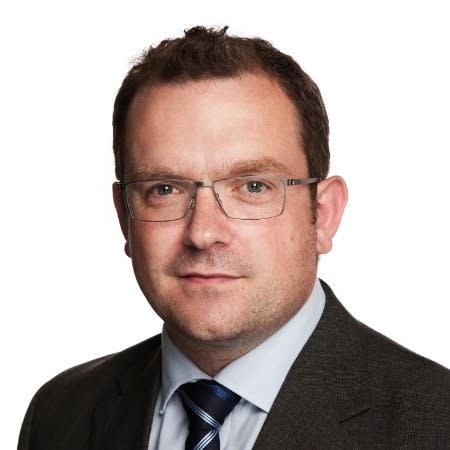
Ben is from Nottingham, England. After moving around a lot, he returned to the University of Nottingham where he undertook a BSc in Computer Science. Upon graduation, Ben spent two years working for the UK national office of international student charity, AIESEC, for which he was ultimately elected National President.
Ben leads the QS Intelligence Unit who are fully responsible for the operational management of all major QS research projects including the QS World University Rankings, the QS World University Rankings by Subject and all the regional university rankings compiled by QS as well as the research reports on business education.
Ben has travelled to over 40 countries and spoken on his research in over 20. He has personally visited over 35 of the world’s top 100 universities amongst countless others and is also a regular speaker on the conference circuit.
Ben is married and has a son, and if he had any free time it would be spent reading, watching movies and skiing.

Eimi is a higher education consultant with QSIU. Her interest in international higher education is informed by her global upbringing in Japan, Hong Kong, Singapore, the United States, and the United Kingdom. Her experiences in five different education systems allow her to employ a multitude of cultural lenses to strategically understand the contexts, complexities, and contingencies that universities face.
Eimi is a graduate of Brown University and the University of Oxford, having studied Education at both institutions. She draws on her work in undergraduate admissions, teaching, peer advising, community building, and research to help universities in their educational ambassadorship.
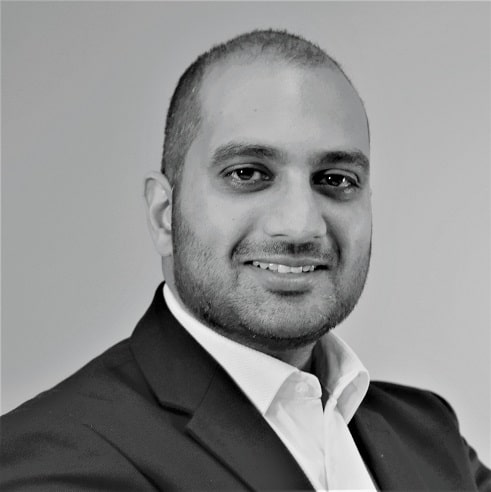
Kesh is a higher education consultant with a special focus on converting data and insights into strategy and implementation plans. Kesh has worked within the Higher Education sector for over 12 years and draws upon his experience of working at institutions to advice clients on the best solutions for their needs.
Kesh’s also works on the International Student Survey, were he uses his knowledge and expertise in marketing, brand development and digital innovation to advice universities on their international student recruitment strategies.
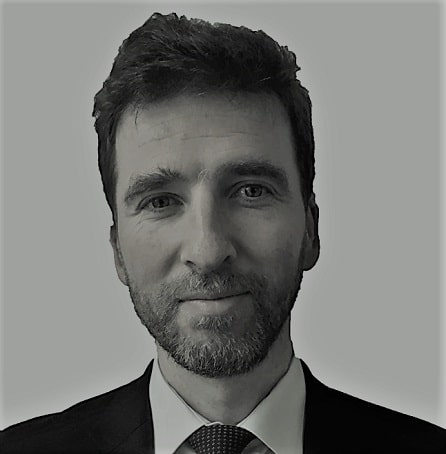
Jacques is a Senior Consultant with a specific focus on international education, higher education performance analysis, and global engagement strategy. Since joining the QS Intelligence Unit, he has been working with academic institutions in Europe, Russia, the Middle East and Asia-Pacific.
Prior to that, Jacques has been engaged with directorial positions that include the strategic orientation and governance of international academic programmes and student services, as well as lecturing in International Relations at Sciences Po, Paris.
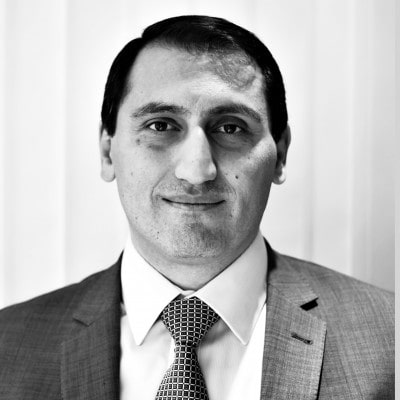
Shadi joined QSIU in 2010. He has been leading and contributing to consulting engagements in universities around the world, particularly focused on performance improvement in strategy, internationalisation, research and marketing and branding. His work included projects with universities in the Middle East, Russia, Japan, Malaysia, Kazakhstan, the Philippines, Korea and Mexico.
He holds a PhD and a Master’s degree in Business Administration from Kobe University in Japan; and a postgraduate diploma in Marketing and Bachelor in Economics (Business Administration) from Damascus University. His post-graduate studies focused on the interaction between institutional performance and knowledge management tools.
Shadi is an experienced management and marketing trainer. He developed course materials and taught management and digital marketing courses (CIM, CAM, DMI) and trained professionals in Management, Marketing and Business Fundamentals in various contexts.

Dr. David Reggio is the QS Intelligence Unit’s Global Head of Consulting, a seasoned international advisor and strategist with extensive global experience in partnership building, innovation linkages, research frameworks and frontier science.
He has worked in Latin America, and Brazil particularly, in the fields of government engagement, strategic alliances, public health and frontier research. He has also designed stakeholder management systems, geo-targeting strategies, research strategies and innovation frameworks for institutions and organisations in Asia, the U.S.A, Europe and the Middle East.
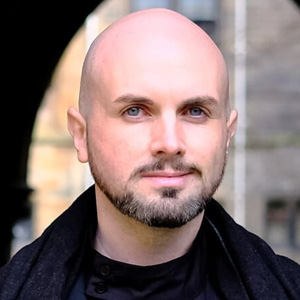
Drew is originally from Glasgow, Scotland. He holds an MA in business, Master’s in linguistics and PhD in Psychology. He has worked in education for over 12 years and joined QS as the Rankings Manager, supporting a team of data and research specialists in our rankings research.
An academic by training (psychology), Drew has presented at international conferences and published research on language. He lectured in the Department of Linguistics at the University of York where he was involved in course planning, teaching, advisory work and research. Missing the buzz of the private sector he took up a position as Education Manager at an educational consultancy in Shanghai, where he led a team of international educators and supported the business growth. Combining this experience in both the public and private education sectors led him to QS. When time and weather allows, he is likely to be listening to jazz whilst photographing his life and travels.
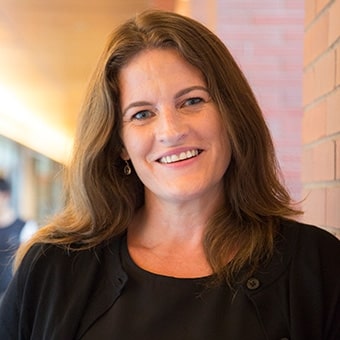
Sarah E. Toms is executive director and co-founder of Wharton Interactive. She is a serious games expert and demonstrated thought leader in the educational technology field, fueled by a passion to find and develop innovative ways to make every learning environment active, engaging, more meaningful, and learner-centered.
Her drive to modernize, transform, and democratize education led Sarah and her team to co-invent Simpl.world, an open source simulation framework. She has spent more than twenty years as a leader in the technology sphere, and was an entrepreneur for over a decade, founding companies that built global CRM, product development, productivity management, and financial systems. In addition, Sarah is coauthor of The Customer Centricity Playbook, the Digital Book Awards 2019 Best Business Book. And she is dedicated to supporting women and girls in the technology field, cofounding WIT@Penn, and through her work with the Women in Tech Summit and techgirlz.org. Follow her on twitter at @SarahEToms.

Jonathan is Vice President & Vice Principal (Service) at King’s College London.
Service has been identified as one of five strategic priorities in King’s Strategic Vision 2029, alongside Education, Research, London and Internationalisation. It encapsulates King’s commitment to society, both through and beyond education and research, and will enable us to realise our vision to make the world a better place.
Jonathan is also a Professor of Public Policy in the Policy Institute at King’s. Jonathan was Director of the institute from February 2014 and 2017.
Jonathan’s main research interests are in biomedical and health R&D policy, research impact assessment and the use of research and evidence in policy and decision making. Jonathan co-founded the International School on Research Impact Assessment.
Recent studies that Jonathan has led include: an assessment of the impact case studies from the UK Research Excellence Framework; a project estimating the economic returns from musculoskeletal-related research in the UK; and a study looking at what the UK people really want from Brexit, where participants were asked to ‘trade’ different aspects of Brexit.
Jonathan was President of RAND Europe between June 2006 and October 2012, where he oversaw the doubling of the organisation’s activity in Europe and the establishment of the Cambridge Centre for Health Services Research, a joint venture with the University of Cambridge. Prior to joining RAND in 2002, Jonathan was Head of Policy at the Wellcome Trust.
Jonathan received his PhD from the Faculty of Medicine, University of London, and his BSc (Econ) from the London School of Economics.

Alex Chisholm is Head of Analytics for the QS Intelligence Unit where he leads a product team that creates dashboards and insight reports for global universities. Since joining in 2017, he has also leveraged results from wider QS survey findings to better understand trends impacting students and higher education institutions worldwide.
Alex has 15 years of experience helping organizations use data to make more evidence based decisions. Previously Alex spent nearly a decade working with the Graduate Management Admission Council (GMAC) where he led a broad management education research program.
Alex, who lives in Amsterdam with his wife and two daughters, is an avid teacher and continues to deliver online, synchronized data analytics courses for working professionals at Harvard University Extension School. He holds a master’s degree in economics from George Mason University and an MBA from the Thunderbird School of Global Management.

Leigh Kamolins is Head of Evaluation at QS. He is responsible for the organization’s catalogue of rankings including the QS World University Rankings and the QS Stars university rating system. He has a background in performance evaluation, quality assurance and evaluation system design. Before joining QS, Leigh led a team at the UK Department for Education reporting on the performance of England’s biggest school reform program in 100 years. He also has previous experience in the public sector in Australia, designing anti-corruption and human rights monitoring frameworks. He has undergraduate and postgraduate degrees from Monash University in Australia which included a period of studying abroad at King’s College London.

Dr. Thurman, a multiple teaching and service award recipient, has extensive advisory and management experience helping a variety of global firms realize value from innovative business, operations, and technology strategies. He has held senior positions at Booz Allen Hamilton and American Express, and has served public and private sector clients on six continents.
Paul’s consulting work focuses on facilitation and analytical modeling to support strategic planning and decision-making, cost management, and improved customer experiences. He has also developed solutions around customer segmentation, demand forecasting, and performance improvement. He currently runs his own management and education consultancy and is a frequent conference presenter.
Professor Thurman currently teaches strategic management and data analysis courses at Columbia’s Mailman School of Public Health. He has also taught courses in decision, risk, and operations in the full-time and Executive MBA Programs at the Columbia, London, and University of California, Berkeley business schools, and at Columbia’s School of International and Public Affairs. Paul was also a Healthcare Research Fellow, Professor, and MBA Program Director at the Moscow School of Management SKOLKOVO in Russia, and he has held visiting professorships in China, India, Brazil, Greece, Saudi Arabia, Chile, Australia, and Iceland.
In addition to his faculty appointments, Paul serves as a clinical professor and affiliated researcher at the National Cancer Institute’s Center for Cancer Research at the National Institutes of Health. His recent peer-reviewed research has focused on scientific collaboration and its effect on research quality, and also on cancer drug patents, FDA approvals, and market pricing. He is the author of MBA Fundamentals Statistics, (Kaplan, 2008; CreateSpace 2016), Pocket Guide to Data Analysis (Kaplan, 2009), and co-author (with Thomas P. Ference) of MBA Fundamentals Strategy (Kaplan, 2009; CreateSpace 2016).
Dr. Thurman is also lead editor and chapter author, with colleagues from around the world, of Female Immigrant Entrepreneurs, Father-Daughter Succession in Family Businesses, Entrepreneurship and Sustainability, and Leadership and Change Management: A Cross-Cultural Perspective, four research compendia published by Gower/Taylor and Rutledge (UK) from 2010-2016. In 2013, Paul completed a text for the SAS Institute, Propensity Scoring and Adjustment for Causal Inference, and presently, in addition to leading USAID-, CDC-, and HRSA-funded efforts to reform public health education in Mozambique, Sierra Leone, and Democratic Republic of Congo, Paul is working with the World Bank to develop a text and workshop on data analysis and decision-making in fragile states focused on the country of Sudan. He recently published his 10th book, a text on strategic planning and decision-making, for the SAS Institute.
Finally, Paul has served on the boards of the Greenburgh (New York) Nature Center, the Scarsdale (New York) Teen Center, and currently sits on the advisory boards of a number of entrepreneurial ventures in healthcare, media and entertainment, and information technology security. Paul received his BS in mathematics from Stanford University and his MBA (valedictorian) from Columbia. He also completed doctoral work in health policy and management at the State University of New York and received his Doctor of Business Administration (DBA) degree from the Ecole des Ponts Business School in Paris, France.
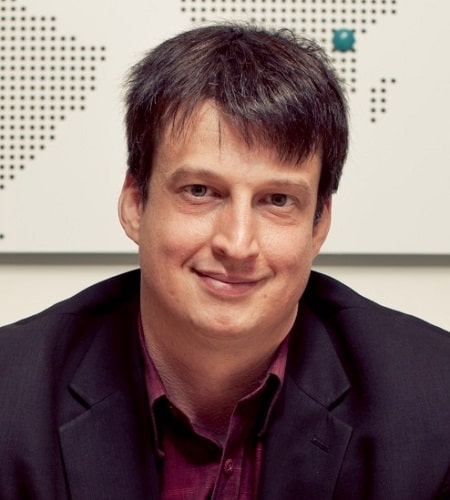
Robert Kirkpatrick is Director of UN Global Pulse, the UN Secretary-General’s initiative on big data and AI. Global Pulse’s network of innovation Labs in New York, Uganda and Indonesia, allow UN System partners to discover and mainstream applications of big data and real-time analytics for sustainable development, humanitarian action, and peace. Global Pulse’s advocacy agenda focuses on public-private data partnerships, and data privacy and policy innovation to enable the responsible use of new technologies for the public good.
Prior to joining the United Nations, Robert co-founded and led software development for two pioneering private-sector humanitarian technology teams, first at Groove Networks, and later as Lead Architect for Microsoft Humanitarian Systems. From 2007-2009 he served as CTO of the non-profit InSTEDD.
Robert was a member of the UN Secretary-General’s Independent Expert Advisory Group on a Data Revolution for Sustainable Development (2014), and currently sits on InSTEDD’s Board of Directors, the World Economic Forum’s Global Agenda Council on Data-Driven Development, the Broadband Commission for Sustainable Development, and the Advisory Board of the UN World Data Forum.

Márcia is founding director of corporate responsibility (CR) at RELX, a FTSE 15 information, analytics and events company with 33,000+ people, operations in 40 countries.
Engaging colleagues throughout the business, Márcia works to ensure RELX’s extra-financial performance furthers competitive advantage and stakeholder confidence. She drives practice that ensures recognition for RELX as a CR leader: over the last year, RELX ranked 2nd in the S&P 1200 for environment, social and governance (ESG) as reported in the Financial Times; 1st for ESG in the media and publishing sectors (and 17th overall) among 12,000+ companies assessed by Sustainalytics; held a AAA ESG rating with MSCI; and was one of 36 LEAD companies of the United Nations Global Compact among approximately 10,000 corporate signatories.
She launched the free RELX SDG Resource Centre featuring news, articles, tools, original research, events and more – from across RELX and key UN and other partners – to advance knowledge of the SDGs.
She is Chair of the UN Global Compact Network UK; Chair of the Corporate Responsibility and Sustainability Council of the Conference Board; and a founding member of the Board of the Ban Ki-moon Centre for Global Citizens. She is founding director of London museum and educational facility Benjamin Franklin House and previously was special advisor to the American Chamber of Commerce (UK).
A Fellow of the Royal Society of Arts, she holds an MA in International Relations from the University of Chicago, and a PHD in Economic History from the London School of Economics. She is a Member of the British Empire (MBE), an honour awarded by the Queen, and lives in London with her husband and two boys.
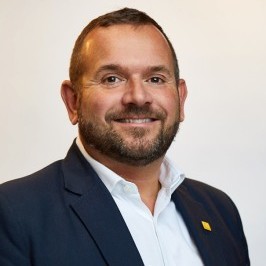
Over 20 years of leading multinational sales and marketing teams in Higher Education around the world with deep longstanding personal relationships with the Australian and New Zealand HE sector as well as the US, Latin America and Asia.
He has worked at QS for 14 years across the portfolio of student recruitment and University performance space. Having worked on the QS global rankings since inception, Jason has built a deep understanding of the global performance metrics and their impact on the international higher education sector. Jason has developed beyond the commercial success and now demands public speaking on rankings, institutional reputation and impact in institutional performance. He oversees a global team of professionals who assist universities in their quest for performance improvement, global rankings and reputation, and has developed an extensive network of university leaders around the world.